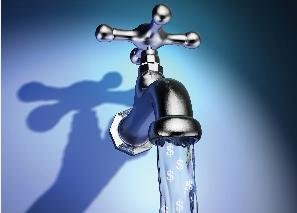Hard water, caused by mineral buildup, can wreak havoc on your skin, hair, appliances and taste buds. A water softener is a type of water treatment system that prevents hard water from developing. Each type has its own process with its own pros and cons. Here are a few different styles of water softener and how they work:
Salt-based softeners
Also called “ion exchange” softeners, these are the most common type. They replace hard minerals like calcium and magnesium with sodium or potassium ions. They last 10–15 years with proper care, but you’ll need to refill the salt regularly.
Pros:
– Reliable and comes in a variety of sizes
– Extends the life of appliances and plumbing, making it very cost-effective
Cons:
– Ongoing salt refills
– Adds small amounts of sodium to water, which some may not like
Salt-free softeners
If you want to avoid salt in your drinking water, this might be for you. These don’t remove minerals but prevent buildup with a process called template-assisted crystallization (TAC). The minerals turn into crystals that pass through water without sticking to surfaces. However, they’re pricier and don’t last as long as salt-based models.
Pros:
– No salt in your drinking water
– Low maintenance (usually just a filter change every 1–3 years)
Cons:
– More expensive upfront
– Less effective when dealing with very high levels of hard water
Magnetic softeners
Magnetic softeners work by changing the charge of minerals with a magnetic field. This prevents minerals from bonding and causing buildup in pipes. They’re easy to install, making them a good option for renters, but the process doesn’t truly “soften” the water and they’ve been known to be inconsistent.
Pros:
– No salt or chemicals
– More affordable and easy to install
Cons:
– Doesn’t actually remove minerals from the water
– The water is only “softened” for a few days at a time
Each type of softener has its own strengths, so the best choice depends on your needs and budget. When it comes to more involved water treatment systems, like the salt-based softener, hiring a professional is strongly recommended. For access to open water treatment bids and other municipal water bids, subscribe to our database. For more interesting articles on similar topics visit our blog page.

